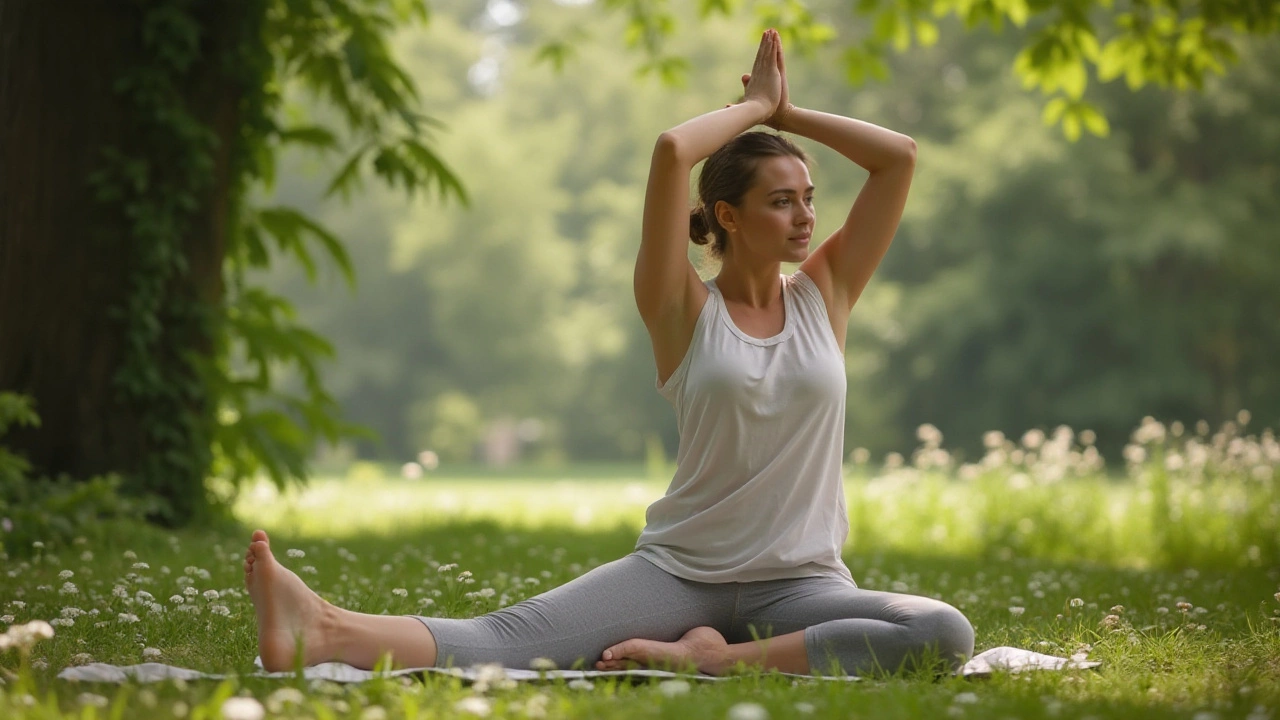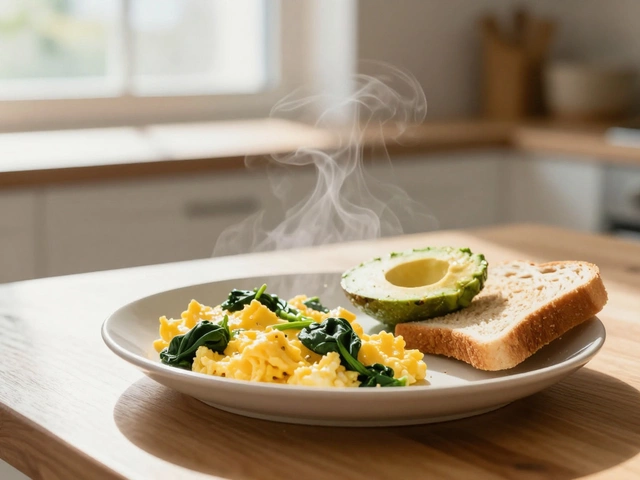Healthy Lifestyle: Simple Steps to Feel Better Every Day
Want to feel more energetic, focused, and happy without overhauling your whole life? You don’t need a radical diet or a marathon training plan. Small, consistent actions add up fast. Below are easy habits you can start right now – no fancy equipment or expensive gadgets required.
Move More, Feel Better
Exercise doesn’t have to mean hitting the gym for hours. A 20‑minute walk around your neighbourhood can raise your mood and improve heart health. If you’re short on time, try the "walking power" tip from our Exercise You Can Do Every Day: The Power of Walking article: walk briskly for 5 minutes, pause, then walk another 5. Repeat three times and you’ve hit a solid 30‑minute session.
Strength training is also a game‑changer. Grab a pair of water bottles and do three sets of 12 bicep curls, squats, or lunges. You’ll notice stronger muscles and higher metabolism within weeks. The key is consistency – aim for three short sessions a week and build from there.
Eat Smart, Live Long
Healthy eating is less about strict rules and more about smarter choices. Start by swapping sugary drinks for water or herbal tea. Add a piece of fruit to your breakfast – a banana or an apple gives you natural energy without the crash.
If dinner planning feels overwhelming, check out our What Should I Eat for Dinner Everyday? guide. It offers quick, balanced meal ideas like grilled chicken with roasted veggies or a veggie‑packed stir‑fry. Keep a pantry of staples – beans, whole grains, frozen veggies – and you’ll always have a base for nutritious meals.
Don’t forget about portion control. Fill half your plate with veggies, a quarter with protein, and the remaining quarter with carbs. This simple visual trick helps you eat a balanced diet without counting calories.
Beyond food, mindset plays a big role. Our Mental Wellbeing Explained piece dives into how short daily practices – like a 5‑minute breathing exercise or jotting down three things you’re grateful for – can reduce stress and improve focus. Try setting a reminder on your phone to pause and breathe deep a few times each day.
Decluttering your space can also boost mental clarity. The 20/20/20 rule from the 20/20/20 Rule for Decluttering article suggests spending 20 minutes sorting, 20 minutes cleaning, and 20 minutes putting things back in order. A tidy home often leads to a tidy mind.
Finally, remember that a healthy lifestyle is a marathon, not a sprint. Celebrate small wins – a week of regular walks, a month of cooking at home, or even a day where you chose a fruit over chips. Those wins build momentum and keep you motivated.
Ready to start? Pick one habit from each section – a short walk, a veggie‑rich dinner, and a 5‑minute gratitude pause. Do it for a week, then add another small change. Before you know it, you’ll be living a healthier, happier life without feeling overwhelmed.
Juggling work and personal life doesn’t have to feel impossible. This article gives practical, down-to-earth tips for building a healthy lifestyle that fits around a busy schedule. From small daily tweaks to building solid routines, you’ll find real strategies that actually make life less stressful. We’ll go beyond basic advice and get real about what helps you stay balanced. Each tip is focused on results and is easy to work into modern life.
Achieving a healthy lifestyle that balances work and personal life can lead to increased happiness and productivity. This article outlines five key characteristics that define a balanced lifestyle, offering practical tips and insights. Learn how physical activity, mindful eating, adequate rest, stress management, and social connections contribute to overall well-being. Discover how integrating these habits can create a harmonious life both at work and home, helping you to thrive. Explore actionable steps to incorporate these traits into your daily routine.
Choosing the most effective fitness routine can be challenging with so many options available. Understanding your personal goals, the benefits of each type of exercise, and how to stay motivated can help in finding a routine that works best for you. This article delves into various fitness routines for strength, flexibility, and overall health, alongside expert tips to keep you consistent and motivated on your fitness journey.
The 321 rule in fitness represents a structured approach to exercising that balances cardiovascular endurance, strength training, and flexibility. By allocating specific periods to each component of exercise, the 321 workout offers a comprehensive routine that is accessible and customizable. This plan is ideal for those looking to achieve a well-rounded fitness lifestyle without spending excessive time at the gym. Through incorporating various types of movements, it caters to different fitness levels and goals.









